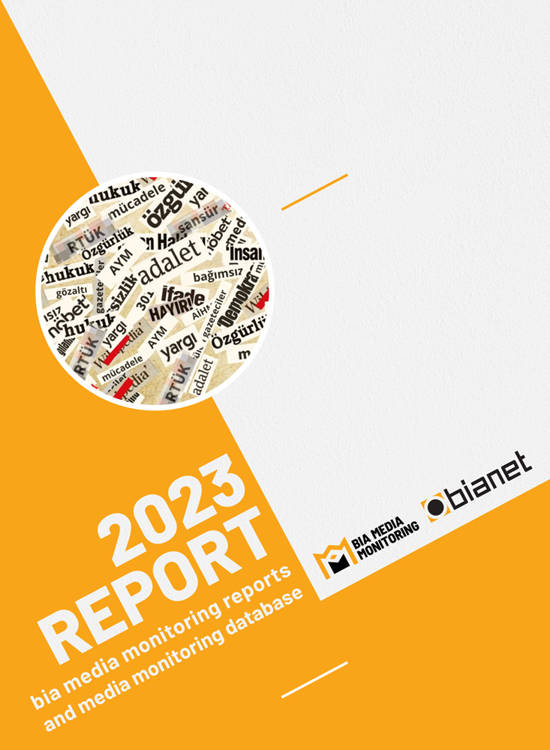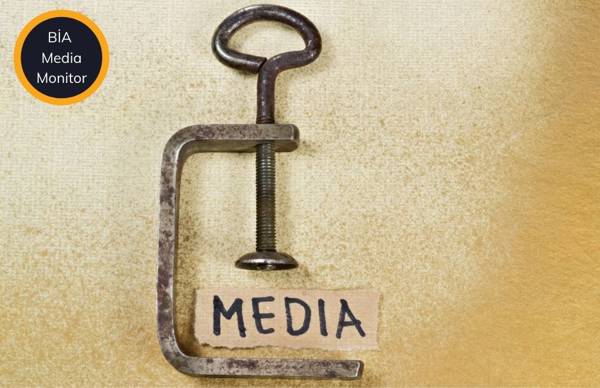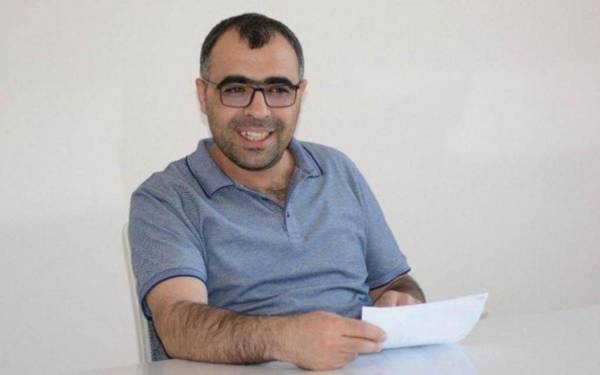BİANET MEDIA MONITORING REPORT - 2023 ASSESSMENT
Judicial pressure on journalists escalated with the 'disinformation law'


Since 2001, the IPS Communication Foundation/bianet has been regularly reporting on violations of freedom of expression, and its 2023 assessment report is now available.
This report, prepared with the financial support of Oslo Metropolitan University (Center for Journalism and Media International Center, JMIC), has been prepared by Sinem Aydınlı and Erol Önderoğlu.
Referencing the BİA Media Monitoring Database 2023 data and four media monitoring reports published in the same year, the report evaluates the state of freedom of expression for media organizations and journalists in Turkey over the past year.
The Media Monitoring Database, regularly updated through daily media monitoring, lists a total of 210 new interferences between January 1, 2023, and January 1, 2024. Alongside interferences from previous years where trials are ongoing, there are a total of 352 interferences for the year 2023.
These interferences include interventions by third parties, such as threats, harassment, or physical violence against journalists, along with interventions by judicial or executive authorities.
The data presented in the report indicates that journalists and media workers in Turkey have predominantly faced the threat of imprisonment due to cases based on the Turkish Penal Code and the Anti-Terrorism Act.
Freedom of expression in 2023
According to the report, 2023 marked the return of Turkey to the category of "countries that detain the most journalists" for the first time since the attempted coup on July 15, 2016.
In the World Press Freedom Index by Reporters Without Borders (RSF), Turkey declined further, ranking 165th out of 180 countries, compared to 149th the previous year.
Turkey is categorized as "not free" in both the global freedom index and the internet freedom index, according to the report by Freedom House.
The law enacted in October 2022, commonly known as the "disinformation law" or referred to as the "censorship law" by opposition circles, criminalizing "publicly spreading misleading information," added another layer to the interventions against freedom of expression.
News coverage of the presidential elections on May 14 and 28 became another indication of the decline in media freedom. Mass arrests of Kurdish journalists, the severe attack on Sinan Aygül after reporting on corruption in Tatvan, and the arrest of TELE1 Editor-in-Chief Merdan Yanardağ are just a few examples of these interventions.
A look at 2023 by the numbers
- 55 journalists were detained.
- 25 journalists were attacked.
- 81 media workers left their jobs due to layoffs or disagreements arising from the editorial line of the media outlet.
- 42 journalists faced physical intervention, attacks, damage to their equipment, targeting, or verbal threats.
- At least 13 journalists were sentenced to a total of 18 years, 8 months, and 25 days in prison and a total of 14,500 TL in fines.
- At least 121 journalists were accused of crimes in defamation and slander cases.
- Trials continued for at least 22 journalists and media workers on charges of "insulting the President."
- RTÜK issued 18 broadcast suspensions and a total of 56 fines amounting to 29,861,186 TL to radio and television institutions.
- Peace Criminal Judgeships or the Union of Access Providers imposed access restrictions on at least 986 news articles in a manner that would restrict the formation of public opinion, based on requests from government representatives and privileged circles.
- The Constitutional Court ruled that the imprisonment of journalists constituted a "violation of the right to freedom of expression" and ordered a total of 88,800 TL in compensation to be paid to journalists.
- "Disinformation" served as the pretext for at least 33 investigations and prosecutions against journalists in 2023. Sixteen journalists were detained, investigated, or arrested on charges of "publicly spreading misleading information." (HA/VK)






